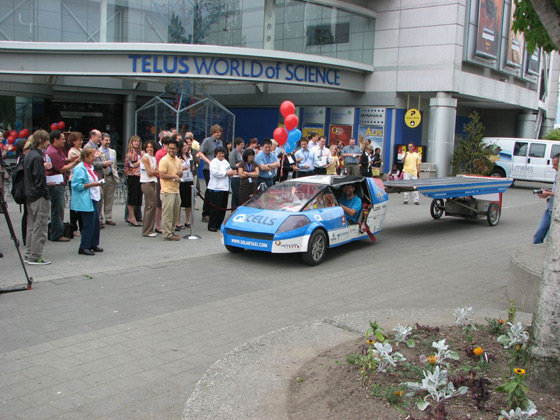American auto industry low on fuel and popular support

After today's Senate hearings the Detroit Big Three are nowhere nearer getting any federal aid than they were after their last visit. Whatever you may think of the automakers "plan" to change and become viable, there is no plan in the Senate itself that would lead to a bill that would be accepted by both parties and be signed by the current President.
And, as I blogged here Tuesday, the price tag is rising. Now it could be as much as $34 billion in this first round of gimme. One economist testified today the ultimate bill to salvage the Big Three could run well over $75 billion.
[poll id=48]
While there may be a Congressional vote next week on some sort of compromise plan, there's clear opposition to any federal aid. The leading Republican in today's hearing comes from Alabama which has car plants run by overseas auto makers, and has no union representation. You can bet he'll not vote to use any of his voters' taxes to save Detroit. There is certainly not a lot of public support for saving the Big Three. One polls shows Americans opposed by 61% with only 37% in favor of rescuing American automakers.
There are unlimited opinions from the chattering classes that run the gamut from complex bankruptcy schemes to "let 'em die" to nationalize at least one of them. Call-in shows reflect everything from disgust with the previous bailouts for Wall Street to anger over saving incompetent auto execs to fear of what would happen if America owned ZERO major automakers. There's open speculation from speculating folk that a short-term compromise might be reached to keep GM operating through January, effectively passing this hot potato to the next administration. Here's one opinionator who says Wall Street--basking in its own bailout--has written off Detroit as dead meat, investment wise. GM and Ford stocks were back down today, of course.
MEANWHILE, IN THE REAL WORLD

A Swiss engineered solar powered car has just finished its round the world trip. It's arrived in Poznan, Poland, where world climate experts are meeting about greenhouse gases and global warming. Earlier I blogged on the less-than-cheery atomospheric data being revealed there.
The main part of the Poznan meeting is next week and the official US stance will be one of co-operation and compromise. Outside the talks environmental groups claim the talks are mostly hot air, no firm targets for reducing greenhouse gases will be set.
And the economic climate is changing as well. Here's one example from our cohorts at CNET where they are covering changes in the tech world caused by the financial malaise. One green tech company is cutting staff before they need more money. It's an ethanol start-up reducing its own burn rate. Detroit could have used this technique.
Meanwhile, it's more bad news for Russia, Saudi Arabia, Venezuela, Nigeria, Dubai, Kuwait, Canada and other petroleum producers: lower prices expected all through next year. $25 per barrel?